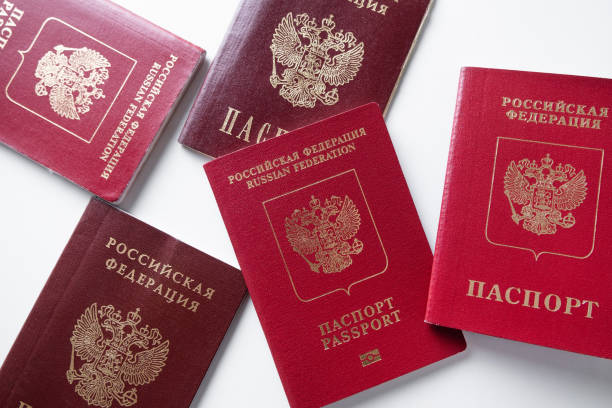According to Canadian immigration rules, some people and countries were restricted from immigrating to Canada.
Canadian immigration officers are responsible for selecting qualified immigrants. They investigated important requirements such as security, criminal acts, or medical issues.
Access will be granted if you are eligible and will be denied if the requirements are not met. You might also be granted a temporary residence visa if your trip to Canada is justified by a legitimate purpose and the situation.
Canadian laws and regulations have penalties and applicable measures on certain countries, individuals and corporations that have been guilty of:
Murder acts, health issues or serious violations of international human rights.
Engage in any form of corruption, and terrorist activities, such as Al-Qaida, Taliban, ISIL (Da’esh).
Canadian sanctions can be found under the Justice for Victims of Corrupt Foreign Officials Act (JVCFOA), the United Nations Act (UNA), and the Special Economic Measures Act (SEMA).

Countries that are not allowed to immigrate to Canada and reasons for restriction
The following countries that are listed below are restricted from entering Canada:
- Belarus
- Central African Republic
- Democratic Republic of the Congo
- Haiti
- Iran
- Iraq
- Lebanon
- Libya
- Mali
- Myanmar
- Nicaragua
- North Korea
- China
- Russia
- Somalia
- South Sudan
- Sudan
- Syria
- Ukraine
Belarus
Belarus restrictions were executed under the Special Economic Measures Act, due to their terrible and persistent violations of human rights and support for the Russian Federation’s invasion of Ukraine’s sovereignty and territorial integrity.
Which represents a serious breach of international peace and security and has contributed to a pressing international crisis.
The designated individuals are subject to a transactions restriction, which effectively results in an asset freeze, under the Special Economic Measures (Belarus) Regulations.
Some international companies also discontinued their business operations in the country. While certain basic services are being disrupted by this situation:
- Banking services
- Transportation
- Delivery services
Various flight alternatives to leaving Belarus are very limited. The state of affairs in Belarus might get worse.
The Canadian Embassy in Poland has very little capacity to offer consular services in Belarus. You should depart Belarus using a commercial method if you are there.
You shouldn’t rely on the Canadian government to assist you in leaving the country. If you choose to stay in Belarus despite this information, you should:
Listen to reliable news sources to stay updated on the situation as it develops, and ensure that all travel documents, including passports, are fully secured.
Ensure to have enough money, necessary things, and medications. Expect interruptions to important services like transportation
Tell your loved ones about your vacation and motivate other Canadians in Belarus to do the same by registering and updating your contact information through the Registration of Canadians Abroad service.
Central African Republic
The Central African Republic was subject to economic penalties on June 19, 2014, by the Canadian government (CAR).
This was done to support continuing humanitarian and political efforts since the riot in March 2013 and in light of a conflict in the CAR to ensure an improvement of constitutional order and security in the country.
Following its duties under the United Nations Act, Canada will carry out the resolutions’ enforcement through the Regulations Implementing the United Nations Resolutions on the Central African Republic (CAR Regulations).
The main purpose of the Regulations is to stop the export, supply or shipping of arms and related material to the CAR by anyone in Canada.
Democratic Republic of the Congo
The United Nations Act was used to levy sanctions against the Democratic Republic of the Congo (DRC) in order to implement Security Council resolutions.
The sanctions placed on the DRC include:
- A ban on the export of weapons and other associated materials to anybody within DRC territory. Restriction on the distribution of technical and financial support for military activities to anybody in the DRC.
- A travel restriction and an asset freeze are imposed on anyone named by the UN committee which was created by Resolution to regulate the sanctions against the DRC.
The Security Council’s judgments are inverted into Canadian law through the United Nations Democratic Republic of the Congo Regulations, as amended.
The current provisions of the Immigration and Refugee Protection Act of Canada guarantee the implementation of the travel ban mandated by Resolution 1596 (2005).
Haiti
The actions of criminal gangs and those who assist them in spreading riot and violence, sanctions pertaining to Haiti have been implemented under the Special Economic Measures Act and the United Nations Act.
There has been a serious international crisis as well as acts of significant corruption as a result of this ongoing grave violation of international peace and security.
The Special Economic Measures (Haiti) Regulations was effective on November 3, 2022. The Regulations Implementing the United Nations Resolution on Haiti was also effective on November 10, 2022.
The people that fail to abide by the Regulations are inadmissible to Canada under the Immigration and Refugee Protection Act.
It is highly necessary for Haitians to have a visa that fulfills the requirement to enter Canada.
Iran
Sanctions against Iran were implemented under the United Nations Act and the Special Economic Measures Act in reaction to Iran’s nuclear and WMD programs, women prosecution, and persistent human rights violations that were committed in Iran.
The persistent violation of world peace and security by the Iranian regime is another reason for these actions.
Canada imposes travel restrictions against people on the Security Council’s list in accordance with Resolution 2231. The Immigration and Refugee Protection Act is used to carry out these restrictions in Canada.
In accordance with the Export and Import Permits Act, Canada continues to impose export restrictions on various sensitive goods that are included on the Export Control List (ECL) (EIPA).
It is required to have valid passport and passport size photos, each with the applicant’s full name and birthdate written on the back. Bank statements or other financial documents as evidence of sufficient finances to sustain your stay in Canada.
Iraq
The United Nations Act was used to authorize sanctions against Iraq in order to implement Security Council resolutions. The following sanctions have been placed against Iraq, subject to some exceptions:
An asset freeze on the former government of Iraq, that existed before May 22, 2003 and any person designated by the UN sanctions committee created in accordance with Resolution 661; a ban on the export of weapons and related materials to anybody in Iraq.
In conclusion
Canada’s immigration policies reflect a careful balance between welcoming diverse individuals and safeguarding its citizens and resources.
The list of countries with restrictions on immigration to Canada underscores the government’s commitment to maintaining national security, public health, and economic stability.
The reasons for these restrictions vary, encompassing concerns such as security threats, public health risks, and the potential strain on social services.
While these measures may limit the mobility of certain individuals, they are essential for upholding the well-being of both current residents and newcomers.
As Canada continues to evolve its immigration policies, it remains dedicated to fostering a vibrant, inclusive society while responsibly managing the challenges associated with global migration.
